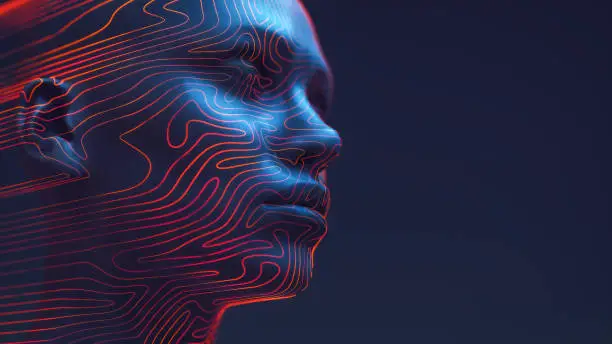In 2024, Facce is no longer just a word related to faces or appearances. It’s a multifaceted concept that has permeated into the world of technology, digital identity, and AI-driven interactions. From facial recognition systems to the faces we show on our social media, the term “facce” encapsulates how technology shapes both our literal and metaphorical faces. Let’s dive deeper into how “facce” has evolved, its importance today, and what the future holds.
What Does “Facce” Mean in 2024?
Facce may sound straightforward, but it has layers of meaning in the tech world. It stems from the Italian word for faces, but in today’s digital age, it’s much more. “Facce” refers to the digital faces we present online, the virtual identities we build, and even the AI-generated faces that populate the internet. As facial recognition technology advances, facce has also become synonymous with how machines recognize and interact with human faces.
The Rise of Facial Recognition Technology
Facial recognition technology has taken the spotlight in recent years. Many of us use facial recognition daily, whether to unlock our phones or access secure spaces. But beyond its convenience, there’s been significant debate about the ethical use of this technology. Here’s a look at the pros and cons:
Benefits:
- Security: Facial recognition has enhanced security in various sectors. Airports, banks, and even schools now utilize this technology to improve safety measures.
- Convenience: Forget passwords! With facial recognition, logging in is just a glance away.
- Personalization: Many apps now use facial recognition to offer personalized services, from makeup filters to tailor-made recommendations.
Concerns:
- Privacy: The big question – how much of your personal data are you giving away? As facial recognition spreads, so do concerns about mass surveillance and data misuse.
- Bias: Some facial recognition systems have shown bias, being less accurate in identifying people of color or different ethnic backgrounds.
- Misuse: In some places, facial recognition is used to monitor public spaces without consent, raising ethical questions.
Social Media and the Role of “Facce”
In the world of social media, facce has a dual meaning. On one hand, it refers to the literal faces we post in selfies and videos. But it also speaks to the digital “face” or persona that people craft online. Whether you’re a social media influencer, a casual user, or even an anonymous avatar, the face you show online is carefully curated.
- Selfie Culture: Ever since the dawn of Instagram, facce has been synonymous with the selfie. While this has helped many express themselves creatively, it’s also contributed to the pressure of maintaining a “perfect” digital face.
- Filters and AR: The rise of augmented reality (AR) filters has made it possible to alter our facce instantly. These tools allow us to enhance or completely transform our appearance, blurring the lines between reality and the digital world.
- The Influencer Effect: For many, their facce is their brand. Social media influencers carefully construct their online appearance to attract followers and brand deals. This trend has transformed how we think about our digital identity.
Facce in AI and Deepfakes
Perhaps the most alarming development related to facce in 2024 is the rise of deepfake technology. Using AI, deepfakes can create incredibly realistic fake videos, altering someone’s facce to say or do things they never did. This brings up several ethical and legal questions.
The Rise of Deepfakes:
- Misinformation: Deepfakes have been used to create false political statements and misleading media, complicating the battle against fake news.
- Art and Creativity: On the other hand, some artists are using deepfake technology to create fascinating art pieces, challenging our perception of what is real.
- Security Risks: Deepfakes pose a significant threat to individuals and organizations alike. From fraud to identity theft, the potential for harm is high.
The Future of “Facce” and Digital Identity
Looking forward, the concept of facce will continue to evolve as technology advances. In the future, your digital facce may not just be your online persona, but a sophisticated avatar powered by AI that interacts with others on your behalf. Companies are already experimenting with virtual influencers—avatars that are indistinguishable from real humans.
What to Expect:
- Hyper-Realistic Avatars: The future might see hyper-realistic avatars becoming a norm. These facce could represent us in meetings, social media, and even customer service interactions.
- Improved Facial Recognition: We can expect facial recognition to become even more advanced, though this will need to be balanced with improved regulations and privacy protection.
- Digital Twins: Imagine having a digital twin, a facce that not only looks like you but can speak and act on your behalf. This could revolutionize industries like entertainment, education, and remote work.
How to Protect Your Digital “Facce”
In this fast-paced digital world, protecting your digital facce is crucial. Here are some tips:
- Limit Sharing: Be mindful of how much of your face or personal information you share online.
- Use Secure Platforms: Only use facial recognition on trusted and secure platforms to avoid data theft.
- Stay Informed: Keep up with the latest trends and developments in AI and facial recognition to better understand the risks and benefits.
- Opt-Out: Many services now allow you to opt out of facial recognition. If you’re uncomfortable, don’t hesitate to exercise this option.
Conclusion
In 2024, the concept of facce has transformed from simply referring to faces to encompassing the entire digital identity landscape. From social media selfies to AI-generated deepfakes and facial recognition technology, facce is everywhere. As we continue to blend the digital with the physical, it’s vital to consider both the opportunities and risks involved. The future of facce promises innovation, but also demands caution and ethical consideration. Whether it’s protecting your privacy or exploring new forms of digital expression, our digital facce will be a key part of shaping the world ahead.


